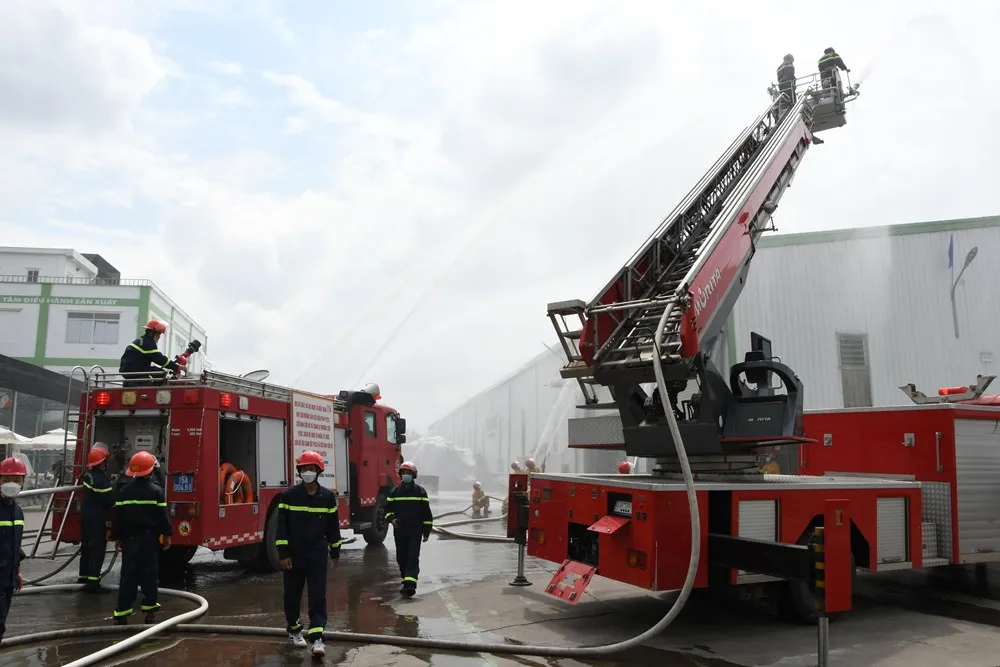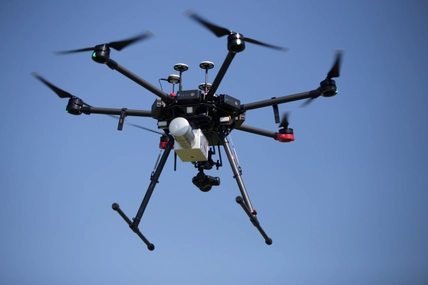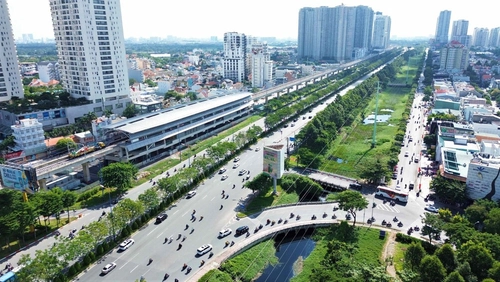The Ministry of Public Security is seeking public opinions on the draft Law on Fire Prevention and Fighting and Rescue that is scheduled to be effective from 2025.
The Ministry of Public Security is seeking public opinions on the draft Law on Fire Prevention and Fighting and Rescue that is scheduled to be effective from 2025.
With 58 articles arranged in eight chapters, the draft contains several new provisions on fire safety requirements for facilities and conditions for assurance of fire safety in residential properties. It also proposes fire safety design requirements applicable to construction projects and work items as well as rules on pre-acceptance test of fire protection systems.
As required by the draft, owners and managers of production and business establishments, commercial facilities and office buildings would have to comply with several strict fire safety regulations.
Accordingly, such entities must follow basic fire safety measures, including maintaining fire prevention conditions and strictly managing flammables, explosives, fire and heat sources, fire- and heat-generating equipment and tools. They would have to install sufficient fire safety equipment, conduct regular inspections and take prompt remedial solutions if detecting any shortcomings or violations of fire safety rules.
Moreover, production and business establishments would have to work out their internal fire protection and rescue rules. They would also be obligated to comply with fire protection regulations at the workplace. Specifically, they must have sufficient fire safety and rescue equipment and systems; technical systems, communication systems, fire alarm and warning systems, and firefighting data and information declaration and updating systems. It would also be compulsory for them to work out fire prevention, smoke control and emergency escape solutions and organize their own firefighters and rescue personnel.

The draft also emphasizes that agencies, organizations and individuals involved in the construction and use of facilities would have to allocate sufficient funds for fire safety items in the course of investment and use thereof. Heads of production and business establishments or office buildings would take responsibility for preparing and managing fire safety dossiers and declaring information about and updating the database of fire prevention and fighting.
As for residential property, the draft clearly states that home electrical systems must meet technical and legal regulations on fire safety. In addition, it is required to work out emergency escape solutions and prepare fire safety and rescue equipment in conformity with practical conditions.
Particularly for buildings which are used for both residential and commercial purposes, there must be solutions for preventing the spread of fire between the residential area and the commercial area.
Noteworthily, when formulating projects on building, renovation or repurposing of construction works for which fire safety solutions and designs are legally mandatory, it is necessary to point out the following details: safety distance; escape systems; fire-resistance ratings and fire protection solutions; smoke control systems; and fire safety systems.
As for projects to build or renovate special economic zones, industrial parks, export processing zones, hi-tech parks or other functional zones, the draft law says that the project documents must outline transport and water supply systems and locations for arrangement of fire brigades.
Compared to the current regulations, the draft no longer requires project owners to report on the construction sites of projects and cost estimates of fire protection works.
The draft stresses that construction projects and work items would be allowed to be put into operation only after specialized management agencies appraise fire safety designs and issue written approvals of pre-acceptance test results of fire protection systems. It is crucial for enterprises to obtain such written approvals before commencing the operation of construction projects or work items. Failure to do so may result in fines of VND 60-100 million (approximately USD 2,400-4,000).
By: VLLF










